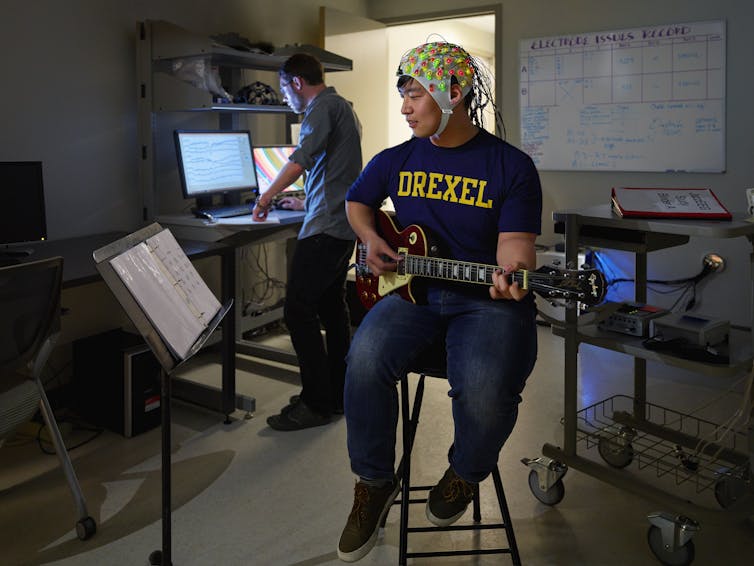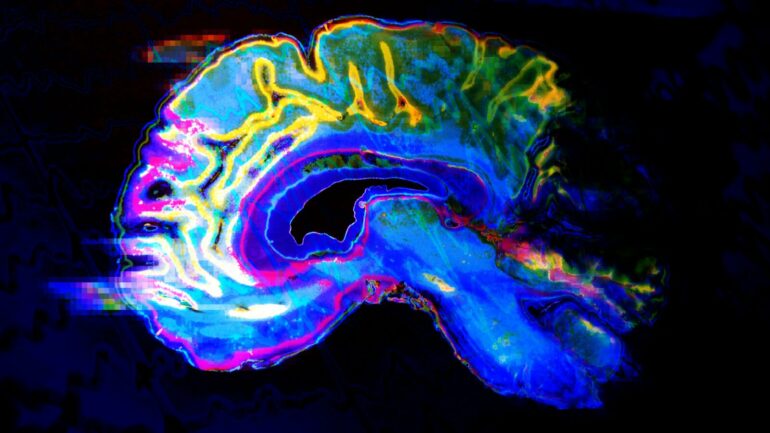Flow, or being “in the zone,” is a state of amped-up creativity, enhanced productivity and blissful consciousness that, some psychologists believe, is also the secret to happiness. It’s considered the brain’s fast track to success in business, the arts or any other field.
But in order to achieve flow, a person must first develop a strong foundation of expertise in their craft. That’s according to a new neuroimaging study from Drexel University’s Creativity Research Lab, which recruited Philly-area jazz guitarists to better understand the key brain processes that underlie flow. Once expertise is attained, the study found, this knowledge must be unleashed and not overthought in order for flow to be reached.
As a cognitive neuroscientist who is senior author of this study, and a university writing instructor, we are a husband-and-wife team who collaborated on a book about the science of creative insight. We believe that this new neuroscience research reveals practical strategies for enhancing, as well as elucidating, innovative thinking.
Jazz musicians in flow
The concept of flow has fascinated creative people ever since pioneering psychological scientist Mihály Csíkszentmihályi began investigating the phenomenon in the 1970s.
Yet, a half-century of behavioral research has not answered many basic questions about the brain mechanisms associated with the feeling of effortless attention that exemplifies flow.
The Drexel experiment pitted two conflicting theories of flow against each other to see which better reflects what happens in people’s brains when they generate ideas. One theory proposes that flow is a state of intensive hyperfocus on a task. The other theory hypothesizes that flow involves relaxing one’s focus or conscious control.
The team recruited 32 jazz guitarists from the Philadelphia area. Their level of experience ranged from novice to veteran, as quantified by the number of public performances they had given. The researchers placed electrode caps on their heads to record their EEG brain waves while they improvised to chord sequences and rhythms that were provided to them.

Postdoctoral researcher Yongtaek Oh plays guitar while his EEG is recorded in Drexel University’s Creativity Research Lab.
John Kounios/Creativity Research Lab/Drexel University, CC BY-ND
Jazz improvisation is a favorite vehicle for cognitive psychologists and neuroscientists who study creativity because it is a measurable real-world task that allows for divergent thinking – the generation of multiple ideas over time.
The musicians themselves rated the degree of flow that they experienced during each performance, and those recordings were later played for expert judges who rated them for creativity.
Train intensively, then surrender
As jazz great Charlie Parker is said to have advised, “You’ve got to learn your instrument, then, you practice, practice, practice. And then, when you…
